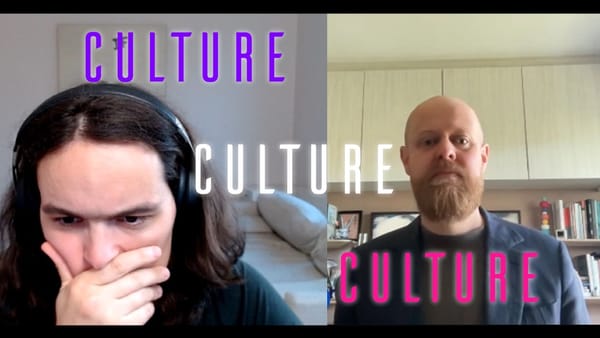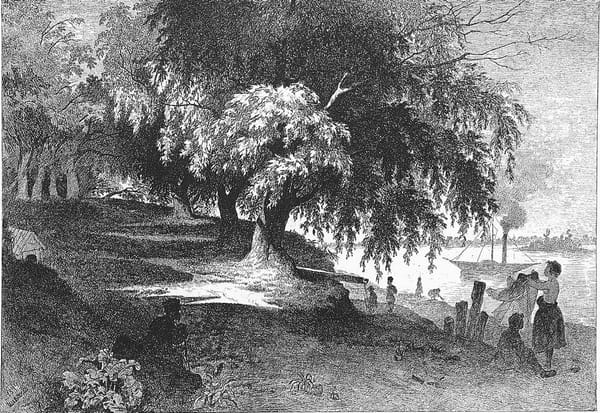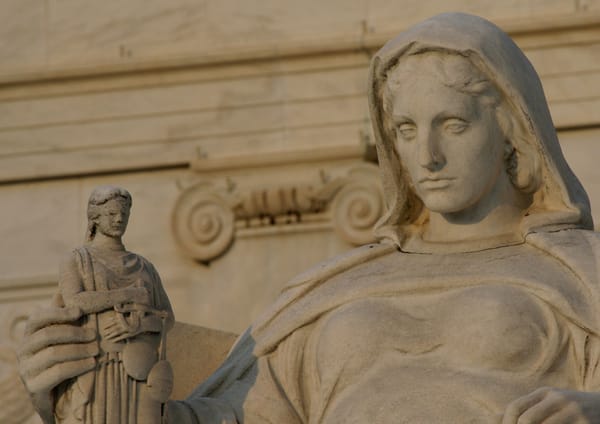Principles of Liberalism

It’s beginning to sound cliché to say liberalism is in crisis, but anti-liberal parties are on the rise across Europe, Brexit is generally understood to be a setback for liberalism, and in America, Donald Trump rode anti-liberal sentiments to power and early signs point to a deeply anti-liberal agenda. Many have abandoned liberal principles, and even those I would call friends of liberalism have begun to think that liberalism has failed. It’s time to remind ourselves of just what liberalism is and what are its basic features.
Liberalism comes in many forms, and any tradition this old and studied will frustrate those who attempt to define even a common, agreed upon core. What I’ll offer instead is a family of principles that almost always constitutes what we think of as liberalism. My aim is to describe these principles and discuss what they mean and dispel what they don’t mean. My hope is that many people who may be disillusioned with liberalism will look upon these principles with fresh eyes.
Liberalism is often defined in terms of the primacy of individual liberty. This is already two concepts: individualism and liberty. These apply to all human persons, which is to say the principles are universal. Individualism and universalism are supported by the idea that persons have in some sense an innate moral equality merely by virtue of their humanity. Finally, pluralism, or a commitment to toleration of diversity of belief and culture, directly obtains from the moral equality of individuals and their free use of reason.
Individualism
Individualism takes the individual human being to be the fundamental unit of ethics and politics. Individualism does not mean atomism. The liberal may adhere to individualism and acknowledge the profound importance of human connection and relationships. Each individual of course has a mother, and enters the world bearing the genetic imprints of both their mother and their father. The absolute dependency of early human life ensures that the initial conditions and some general contours of an individual’s life are not their own in any obvious sense. And the culture, languages, and communities an individual is born into further shape their life’s possibilities, and even their understandings and values to some extent. A liberal may place immense value on their membership in different groups, whether family, ethnic group, nation or state, community, faith, and so on.
Nevertheless, there is a deep internality to human life. The individual experiences a narrative and store of memories they alone are privy to. They alone perceive their thoughts and internal debates; they dream only their own dreams. While thoughts and emotions may be held simultaneously for the same reasons across persons, they are still felt distinctly by each individual. Our bodies are separate. An individual digests only their own food and feels only their own thirst and hunger; they feel fatigue only from their own muscles, pleasure and pain from only their own nervous system. The individual breathes with only their lungs and pumps blood with only their heart. And of course the individual is fated to die alone.
The liberal takes this separateness as a fundamental truth. Any ideology that ignores or denies this separateness of individuals, or that asserts the individual is of less moral importance than some group, is to that extent illiberal. Thus, utilitarianism, an ethical approach that aggregates pain and pleasure across individuals, must be at least in tension with liberalism, though there are forms of utilitarianism that seek to resolve this tension. Ideologies of “national greatness” that view the flourishing of the nation irrespective of individual well-being face a similar tension. While trade-offs are inevitable in our world of limitations and some individuals are bound to lose against others in these trade-offs, the liberal maintains that no individuals may simply be subsumed into a collective or otherwise ignored in ethical considerations.
Liberty
The liberal begins by assuming the intrinsic value of individual liberty. The individual may do or be what they please and no one should interfere with their actions or projects unless they have powerful justifying reasons to interfere. This applies to everyday actions like choosing where to go, what to eat or drink, what to buy or sell, what to wear, whether to pray or sing or exercise and how. And where these actions involve others, the assumption of liberty extends to whom the individual chooses to interact with. It applies to our long term projects. The individual is free to choose a course of study (or not to study), a career or job, whether to have a family and whom to create that family with, a sport or craft to master, and so on. An individual is free to choose and pursue their own understanding of God(s), the heavens, and the good life. They choose a religious faith, or not to believe at all. They determine for themselves the importance of civic engagement, work-family balance, and education. And they are free to develop their own political beliefs, and which political factions to join, if any. To the liberal, none of this requires permission or approval.
This presumption can be contrasted with an illiberal understanding that an individual is not assumed to be free to act without explicit permission. A totalitarian society may operate with this general understanding. Avoiding this extreme, we can consider areas of social life as illiberal to the extent they require that individuals seek permission from some authority before they commit some action, before they plan and execute projects, and before they fashion their own fundamental beliefs about life and living. Thus we speak of the illiberalism of a command-and-control economy because individuals are not free to pursue their own agendas in the market. Conversely we speak of liberalizing reforms when unnecessary or poorly justified regulations are removed. We speak of censorship and other curtailments of free expression as illiberal. State support of a specific faith and repression of disfavored religions are likewise illiberal.
But the presumption of liberty can be overridden. If there are strong reasons to forbid a person from doing something, then the liberal has no problem with forbidding that thing. Such overriding considerations can take many forms, such as the need to protect the liberty of others, facilitating social order for collective benefit, or preventing gross moral horror. Mileage will vary on when individual freedom can be justifiably overridden, and here is not the place to resolve ideological disputes, but the idea of the presumption of liberty should be clear enough.
And liberty must be understood in context. As noted above, we aren’t atomistic individuals who encounter one another in some ahistorical “state of nature.” The actual state of nature is the sociopolitical environment we find ourselves in now, which has evolved from a sequence of political power struggles, social movements, technological innovations, and multipolar democratic compromises. The basic liberties mentioned above are intuitive enough to understand outside any political context, but the imperatives of freedom in property, contracts, finance, intellectual property, common law, restitution for historical injustices, and other complicated domains are much harder to discern. Bodies of statute and precedent stack, interpenetrate, and co-evolve so that we can only make trade-offs among competing but legitimate values. What, for example, does the presumption of liberty advise in the case of separatist religious groups seeking to remove their children from compulsory schooling? The implications of freedom are even murkier where jurisdictions overlap, or where international conflicts and obligations are concerned. Some problems are hard.
Universalism and moral equality
The blessings of liberty belong to each individual, regardless of their sex, race, place of birth, religion, sexuality, wealth, class, disability, or any other contingent characteristic. Each individual deserves freedom just in virtue of their humanity and their abilities to reason and participate in society in moral ways. A person has a certain inalienable dignity as an individual just by being capable of enjoying free thought and action.
Those societies and belief systems are illiberal to the extent they fail to respect the dignity and liberty of individuals on account of these factors. Racist and ethnonationalist regimes; societies that place individuals in certain castes because of the identities of their parents that they cannot escape; societies that condone religious persecution; patriarchal societies that limit the freedom of women or transgender persons; all these societies are illiberal. And otherwise liberal societies are illiberal to the extent they condone or allow these sorts of hierarchies.
While each person deserves liberty, that doesn’t necessarily mean that there is a singular set of liberal policies, or that liberty will be protected in the same ways in every society. The liberal understands that different societies have developed along different trajectories. A society in which certain religious or ethnic groups suffered a long period of violence and strife may have a significantly different constitution from a society in which there was a dominant majority group for a long time. The liberal recognizes that no single liberal constitution can be simply copied and pasted to another society without paying careful attention to the social and historical context.
Furthermore, no currently existing society is perfectly liberal. Liberalism is a work in progress around the world, and while some countries are certainly more liberal than others, those we would consider basically liberal have different strengths and weaknesses (say, a freer labor market in one versus stronger protection for religious liberty or free speech in another). And all have adapted liberal principles to their institutions in slightly different ways (say, in the procedural details of legislative bodies). No one and no society is in a position to dictate to those from other cultures exactly how liberal principles must be applied. But this is no comfort to illiberal governments and other authorities around the world. No one and no society is free from liberal criticism. Indeed, liberalism encourages intercultural dialogue and exchange, both on grounds of freedom as well as learning and improving from exchange. Perfection is not a prerequisite for liberal criticism.
Pluralism
One might argue that, while sex, race, disability, and place of birth are obviously morally arbitrary, religions are chosen, and wealth, class, and perhaps to some extent sexuality may be significantly influenced by a person’s choices. First, some level of dignity is simply inalienable. Even if a person must be confined to protect the rest of society, their humanity affords them some basic level of decent treatment. Second, the liberal takes an expansive view of what choices are “morally arbitrary,” at least for the purposes of protecting individual liberty.
The very basis for individual dignity—the ability to reflect and choose—makes diversity inevitable. Individuals will come to different conclusions about matters of high and low importance and everything in between. To the extent possible, the liberal must respect the good faith beliefs of their fellows. A liberal may disapprove of the religious doctrines of others but they must still respect the rights of those others to practice their faiths. The liberal recognizes that in order to live together in peace, we must accommodate the sincerely held beliefs of others who understand the world very differently but who also desire peaceful and productive coexistence. Exceptions arise when some party takes their deeply held beliefs to be inconsistent with the pluralistic peace and acts on those beliefs through violence or threats of violence.
Thus, it may not matter much that religion and socioeconomic class may be determined to some extent by choice, though note here the deep effects one’s environment has on both. The liberal tends to minimize those aspects of an individual’s identity that are targeted for moral criticism. The liberal begins with the assumption that another individual has chosen their deeply held beliefs and lifestyle with a good faith use of their rational powers. The liberal society can thus be expected to be and become diverse in terms of ethnicity, religion, and lifestyle. A society is illiberal to the extent it tries to impose uniformity or hierarchy along any factors that pertain to a person’s sense of identity.
Liberal purposes
These are the principles the liberal seeks to apply to society and its government. But it’s worth asking if in addition to these principles there are any overarching purposes that liberal society is directed toward. Given the importance of individual freedom and pluralism to liberalism, any social goal would need to be rather vague and capacious to avoid an illiberal prescriptivism.
Individual freedom itself is one liberal goal. That is, a liberal society is one that aims toward securing and nourishing freedom to ever greater degrees. The liberal looks to a future where each person, regardless of their background, is able to develop their capacities so they can make decisions and plan projects that are truly their own.
Peace has already been mentioned. One of the historical reasons liberal principles coalesced in the first place was to end ethnic and religious strife, and to find a way diverse people could live together in peace. Liberalism seeks to entrench this pluralistic peace, and to extend its reach as widely as possible.
Poverty, broadly understood to mean having a lack of means to secure one’s own well-being, is a kind of unfreedom. It prevents individuals from pursuing the kinds of lives they have good reason to wish to live because they are struggling merely to survive. Poverty can also exacerbate strife and conflict. While the liberal may choose to live their own life within frugal means, the liberal recognizes that a prosperous society empowers individuals to make more authentic choices about their lives, rather than choices circumscribed by desperation.
The liberal thus advances the principles of individualism, freedom, universalism, equality, and pluralism in society, and in so doing ultimately directs that society toward the natural liberal ends of peace, freedom, and prosperity for all.




